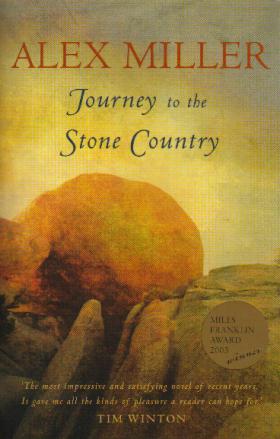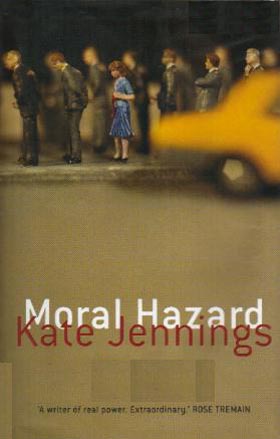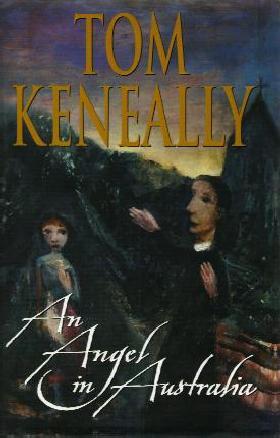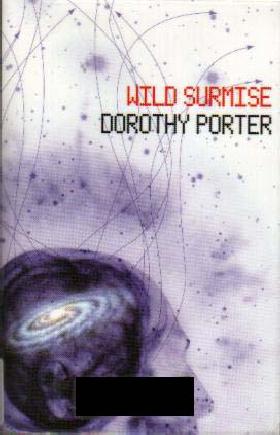
Alex Miller
The following novels constitute the shortlist for the 2003 Miles Franklin Award:

|
Journey to the Stone Country Alex Miller |
Dustjacket synopsis:
"Betrayed by her husband, Annabelle Beck retreats from Melbourne to her old family home in tropical North Queensland where
she meets Bo Rennie, one of the Jangga tribe. Intrigued by Bo's claim that he holds the key to her future, Annabelle
sets out with him on a path of recovery that leads back to her childhood and into the Jangga's ancient heartland, where
their grandparents's lives begin to yield secrets that will challenge the possibility of their happiness together.
"With the consummate artistry of a novelist working at the height of his powers, Miller convinces us that the stone country is not only a remote and exotic location in North Queensland, but is also an unvisited place within each of us. Journey to the Stone Country confirms Miller's reputation as one of Australia's most intelligent and uncompromising writers."
Quotes:
"The most impressive and satisfying novel of recent years. It gave me all the kinds of pleasure a reader can hope for" -
Tim Winton
"A terrific tale of love and redemption that captivates from the first line." - Nicholas Shakespeare
"Miller's fiction has a mystifying power that is always far more than the sum of its parts...his footsteps - softly, deftly,
steadily - take you places you may not have been, and their sound resonates for a long time." - Andrea Stretton,
Sydney Morning Herald
First Paragraph:
The moment she opened the front door and stepped into the passage she knew he was gone. She stood in the silence, her heavy briefcase hanging from her hand, staring at her reflection in the bevelled mirrorglass on the hallstand. The passage smelled of fish from next door's cooking. It was raining again and the tyres going past in the road outside were making a swishing sound. A week earlier they had celebrated her forty-second birthday together at her favorite Italian restaurant in Carlton. That evening with their meal they shared a bottle of wine and then went home and made love. After making love she slept soundly and woke next morning refreshed. That day, which was a Saturday, they began planning a trip to Europe, to be undertaken in the autumn. There were conferences they would each attend, hers at Kent on Globalising History and his at Leeds on Biography as Fiction. After her conference she was to look up family connections in Somerset and they would then meet in Frankfurt and spend a week there together with his brother's family before flying home.
From the Allen & Unwin paperback edition, 2003.
Notes:
You can read more about Alex Miller here.

|
The Prosperous Thief Andrea Goldsmith |
Dustjacket synopsis:
"There are thieves who prosper. But are there thefts that can never be forgiven?
"The Prosperous Thief covers the turbulent sweep of the twentieth century. Rich in ideas and emotions, it is an epic story of the entwined lives of two vastly different families spanning three continents.
"Alice Lewin survived the war as a young child. After decades of burying her past she decides to visit the Kindertransport archive, where she learns of the existence of a possible relative, Henry Lewin. She travels to Australia to hear his story, but it's a story that she's in no way prepared to hear.
"The truth has profound ramifications and both Alice's son, Raphe, and Henry's daughter, Laura, struggle to deal with their connected lives. But just as the thefts of the Second World War define their past, so deception threatens their future.
"From the horrors of war to the fiery landscape of one of the world's most active volcanoes, this compelling novel generates its own unsettling shadows."
First Paragraph:
On a balmy night in the summer of 1910, not far from the gutter in Berlin's Scheunenviertel, Heinrick Heck was born. Twenty-four hours later his mother was back at the bar downing her beers and buttoning Heini to a nipple whenever he threatened to bawl. HIs father, typial of the wanderer-fathers in the Scheunenviertel, had moved on months before the birth. He had promised Heini's mother he'd be back, but was either dead or in gaol or had chanced on some good luck he wasn't about to share with a woman who meant only shackles and misfortune. Greta didn't care, she'd moved on too. First there had been Johannes, followed by a messy month with Johannes and Bulle, and finally, not long before the birth, sentimental Heinrick, who was honoured, he said, to offer his name to the child. Seven weeks later and the sentiment had soured; soon Heinrick, too, was gone, leaving behind nothing but his name.
Heini was weanedf rom breast to beer in three or four bars of his mother's preference. Berlin's white beer was a favourite along with a nice piece of sausage, although Heini learned early not to be choosy. When there was nothing better to eat he would climb on a chair and from there to the table, dip his fist into the musrard pot and lick.
From the Allen & Unwin paperback edition, 2002.

|
Of a Boy Sonya Hartnett |
Dustjacket synopsis:
"The year is 1977, and Adrian is nine. He lies with his gran and his uncle Rory; his best friend is Clinton Tull. He
loves to draw and he wnats a dog; he's afaid of quicksand and self-combustion. Adrian watches his suburban world, but
there is much he canot undertsnad. He does not, for instance, know why three neighbourhood children might set out to buy
ice-cream and never come back..."
Quotes:
"As sharp and as tender as a suspenseful novel can be." - Robert Drewe
First Paragraph:
It was a warm day and they had behaved, as they had promised they could, so there must be ice-cream. Veronica took her sister's hand. That afternoon, so near to winter, the sky was very blue; the sun felt soft as a cat. The children, on the footpath, paused to wave to their mother. For them, at their age, a trip to the milkbar could take on the dimensions of a voyage.
The mother straightened from the soil, hair falling into her eyes. Her children's voices were thin and high, the piping of chicks in a nest. 'Goodbye, my loves,' she said, the words no more than her habit. The mother would remember, later, the white glint of silver coins held tight in the palm of her son.
Christopher was five, with a child's ponderous gait; his older sisters, leggy as fillies, must match their pace to his. Zoe's thoughts would drift as she ambled, lingering on insects and flowers. Bending again to her garden, the mother knew without calculation that her children would be gone for half an hour: fifteen minutes to the shop, fifteen minutes home.
From the Penguin paperback edition, 2002.

|
Moral Hazard Kate Jennings |
Dustjacket synopsis:
"On Wall Street, reflects Cath, women are about as welcome as fleas in a sleeping bag. Funny,liberal and left-leaning,
she is an unlikely candidate to be writig speeches on derivatives in a cubicle in a Manhattan tower, 'putting words in
the mouths of plutocrats deeply suspicious of metaphors and words or more than two syllables'. She finds herself on Wall
Street because she needs serious money. After ten good years, her beloved older husband Bailey is suffering from
Alzheimer's.
"So begins Cath's journey into two nightmare worlds. By day she deals with the topsy-turvy logic and ingrown personalities at work in high finance; by night she has to watch the slow disintegration of the man she loves. In between, she must stop herself from falling apart. Friendship with Mike, a colleague and incognito socialist, helps her survive the assault course of the workplace with its vicious office politics. But as the money markets hurtle towards financial meltdown, Cath faces personal disaster and amoral hazard that she cannot ignore.
"Kate Jennings' prose is lean yet rich in unexpected, telling detail. Tense, taut and compulsively readable, Moral Hazard is peopled by extraordinary characters and informed by a mordant, witty intelligence."
Quotes:
"A unique book by an extraordinary writer: The great city illuminated from within. Kate Jennings brings all her powers of
pace and tone to bear in a novel that is humane and unsparing; witty, unsettling, and wildly intelligent" - Shirley Hazzard
"I trust ever word that comes from this extremely clear-eyed author" - Les Murray
First Paragraph:
How would you have me write about it? Bloody awful, all of it.
I will tell my story as straight as I can, as straight as anyone's crooked recollections allow. I will tell it in my own voice, although treating myself as another, observed, appeals. If I can, no jokes or jibes, no persiflage - my preferred defenses. I'd rather eat garden worms than be earnest or serious. Or sentimental.
I recount the events of those years with great reluctance. Not because you might think less of me - there is always that. No, the reason is a rule I try to follow, summed up by Ellen Burstyn in the movie Alice Doesn't Live Here Anymore: "Don't look back. You'll turn into a pillar of shit."
See? I can't help it. Wisecracking - a reflex, I've lived in New York for several decades, but I was born in Australia, where the fine art of undercutting ourselves - and others - is learned along with our ABCs. Australians - clowns, debunkers.
From the Picador hardback edition, 2002.
Notes:
You can read more about Kate Jennings here.

|
An Angel in Australia Tom Keneally |
Dustjacket synopsis:
"Sydney 1942 - the year of the fall of Singapore, the bombing of Darwin and the surprise attack on Sydney Harbour by
Japanese midget submarines. Australia is surely doomed to fall to the Japanese...
"Through the eyes of a naive young priest we see into the hearts of a people who fear the end of life as they know it. In the confessional, Father Frank Darragh hears how his community is changing - how the very fear of invasion by the Japanese is leading people to challenge what the church teaches is right or wrong. Under the threat of death, people do things they would never dream of in peacetime. Especially vulnerable are those women whose husbands have been captured in Singapore or the Western desert. Facing the future alone and unprotected, they are at risk of succumbing to the charms of more subtle invaders, American servicemen.
"When one of Father Darragh's 'fallen' parishioners, the young working class wife of an Australian POW, is found brutally murdered, she takes on the character of a victim of war in the mind of the impressionable young priest. His obsession with her lost soul runs deeper than he will admit and leads Darragh on a dangerous journey of personal discovery - one that puts his own life at risk..."
First Paragraph:
Pentitents, kneeling in the confessional, can be divided into predictable categories. The tennis-playing young priests at White City on Mondays, drinking beer supplied, despite war rationing, by a Knight of the Southern Cross who owned a hotel at Edgecliff, often did so. They spoke only of generalised types of sin and sinner, being careful not to violate the strict seal of the sacrament of penance. So, there were, for instance, the self-congratulators, muttering minor sins; the shame-hot boy masturbators; the guilt-obsessed, so hungry for pardon that they would confess, if given a chance, many times a day.
Among priests, as among the laity, the confessional was a focus of humour, it was a focus of dread and hope. The curates sitting by the tennis courts all agreed that hearing the utterly predictable confessions was an ordeal, and boring. Young priests groaned thorugh their Saturday afternoons, leaving their radios, the staccato of horse races, the reports of Sheffield Shield or rugby league at the Sydney Cricket Ground, to do their personal penance in confesional boxes too hot in summers, too cold in winters. Then a quick meal and their Saturday evening stint in the box began, with all the banal confessions of disobedience, small theft, secret desire, shifty touches and self-soiling.
From the Doubleday hardcover edition, 2002.
Notes:
You can read more about Tom Keneally here.

|
Wild Surmise Dorothy Porter |
Dustjacket synopsis:
"Alex Leefson is astronomy's glamour girl, in love with the satellite Europa and the equally unreachable Phoebe. Meanwhile,
her husband Daniel rages against his tedious job, his failing health and his wife's infidelity.
"Full of Dorothy Porter's customary bite and sensuality, Wild Surmise is an engrossing duet between two passionately estranged voices."
Quotes:
"possesses a blowtorch talent - and knows how to use it" - The Australian
"Dorothy Porter has adopted the verse novel with extraordinary success ... Porter's move into this genre had caught the
public imagination and broken the barrier between poetry and prose" - Australian Book Review
First Paragraph:
Europa
Let us travel the three hundred and ninety million miles to Jupiter's smoothest moon, Europa. You can't miss Jupiter hanging over its moon in a whirling rainbow mass of push, pull and poison. Feel Europa's freezing toxic silence. You're standing on a raft of thick alien ice, but you're moving - foating like a berg on the deepest ocean in the unknown world. This is the roof, the shield of a black liquid world, where you may one day drop like a warm stone. A new world where you might learn colder lessons than nothing.
From the Picador paperback edition, 2002.
Notes:
You can read more about Dorothy Porter here.
This page and its contents are copyright © 2006 by Perry Middlemiss, Melbourne, Victoria, Australia.
Last modified: January 31, 2006.